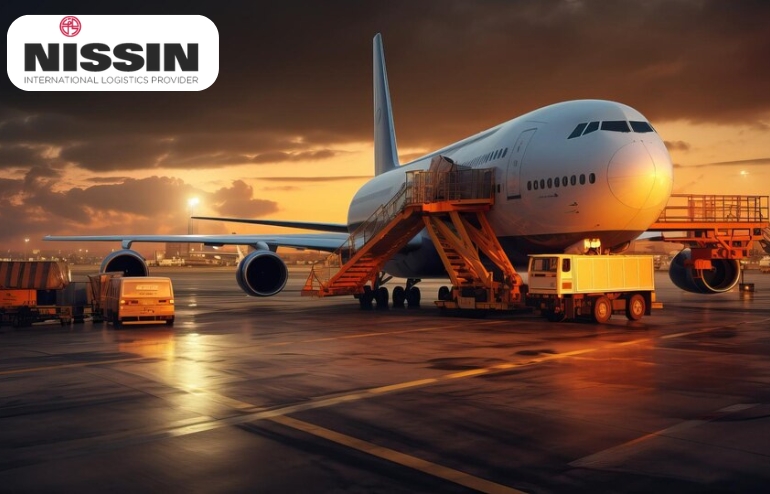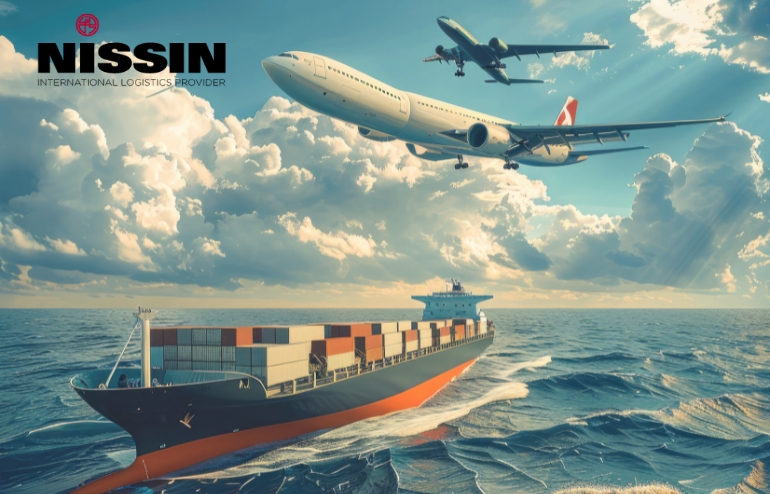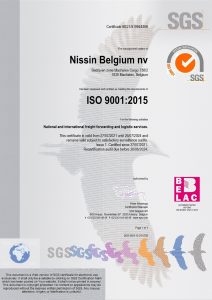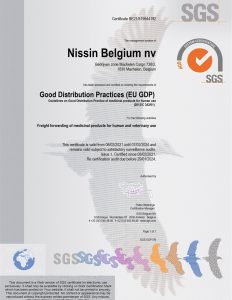Air freight has revolutionized global transport, becoming the go-to for lightning-fast and dependable delivery. Whether you’re a business aiming to meet tight deadlines or an individual needing urgent shipments, air freight is your high-speed solution. But before you decide, it’s essential to consider its pros and cons carefully.
This blog explores its various types, key benefits, and challenges. It also explains why Nissin Belgium is a standout leader in providing top-notch air freight solutions.
What is Air Freight (AF)?
Air freight, or air cargo, transports goods by air using commercial aircraft. It’s a popular choice for individuals and businesses that need to move goods quickly and efficiently across long distances. AF is often used for high-value, low-weight goods such as electronics, pharmaceuticals, and perishable goods.
What are the Types of Air Freight (AF)?
AF services can be categorized into two main types:
General Cargo
This includes goods that do not require special handling and are not perishable, hazardous, or valuable. General cargo often comprises consumer goods, machinery, and other standard items.
Special Cargo
Special cargo requires specific handling, including perishable items, pharmaceuticals, high-value products, etc. These shipments often need temperature control, special packaging, or other unique handling procedures.
Advantages of Air Freight Shipping
Speed: AF is the fastest mode of transportation, making it the best choice for time-sensitive shipments. Whether express air freight or standard air cargo, goods can be delivered within hours, significantly reducing lead times and improving supply chain efficiency.
Global Reach: Air freight logistics enable companies to ship goods to almost any international location. Leading AF companies like Nissin Belgium maintain extensive global networks, providing transportation across continents.
Security: Strict regulations and security measures significantly reduce the risk of theft or damage, making it a reliable option for high-value shipments.
Reliability: Known for its reliability, AF services adhere to strict schedules, with fewer delays or cancellations than other transport modes. This ensures timely deliveries, which is crucial for businesses relying on just-in-time inventory systems.
Disadvantages of Air Freight (AF) Shipping
Cost: The primary disadvantage of AF transport is the cost. It’s significantly more expensive than other modes of transportation, such as sea or land freight. The high price is due to the speed and security offered.
Limited Capacity: Services have limited capacity compared to other transport methods. It has strict weight and size limitations, so large or heavy shipments may not be feasible or incur additional costs.
Environmental Impact: Air freight has a higher ecological impact than other shipping methods. The carbon footprint of air transportation is significantly higher, making it a less sustainable option for businesses focused on reducing their environmental impact.
Weather Dependence: Adverse weather conditions can affect AF logistics. Severe weather can cause flight delays or cancellations, potentially disrupting the supply chain and causing delivery delays.
Air Freight Process: From Booking to Final Delivery
The air freight involves a series of well-coordinated steps to transport goods swiftly and securely. Likewise, understanding each stage helps manage expectations for smooth operations from pickup to final delivery. Here’s a breakdown:
Booking and Planning
The first step in air freight involves booking the shipment with an AF forwarder. This entity handles all the necessary documentation and logistics to ensure a smooth transportation process.
Pickup and Transportation
Once the booking is confirmed, the goods are collected from the shipper’s location and transported to the airport.
Customs Clearance
The shipment must undergo customs clearance before boarding the aircraft. This process verifies that all required documentation is in place and that the goods comply with the regulations of both the origin and destination countries.
Loading and Transport
After customs clearance, the goods are loaded onto the aircraft for transportation. The AF forwarder ensures that the shipment is handled carefully, adhering to specific requirements or instructions.
Arrival and Customs Clearance at Destination
Upon arrival at the destination airport, the shipment must again pass through customs clearance. This confirms that the goods have been imported lawfully and that applicable duties or taxes have been paid.
Final Delivery
Once the goods have cleared customs, they are transported to their final destination, completing the air freight process.
We Can Help
Nissin Belgium provides reliable and prompt AF services to address your shipping needs. With our extensive global network, we deliver timely solutions and expertly manage various cargo types.
Whether you need express shipping or assistance with complex logistics, Nissin offers smooth operations for your business. Take action now to benefit from Nissin Belgium’s thorough air freight services.
Contact us today to learn how we can assist with your shipping requirements and contribute to your business’s success.







